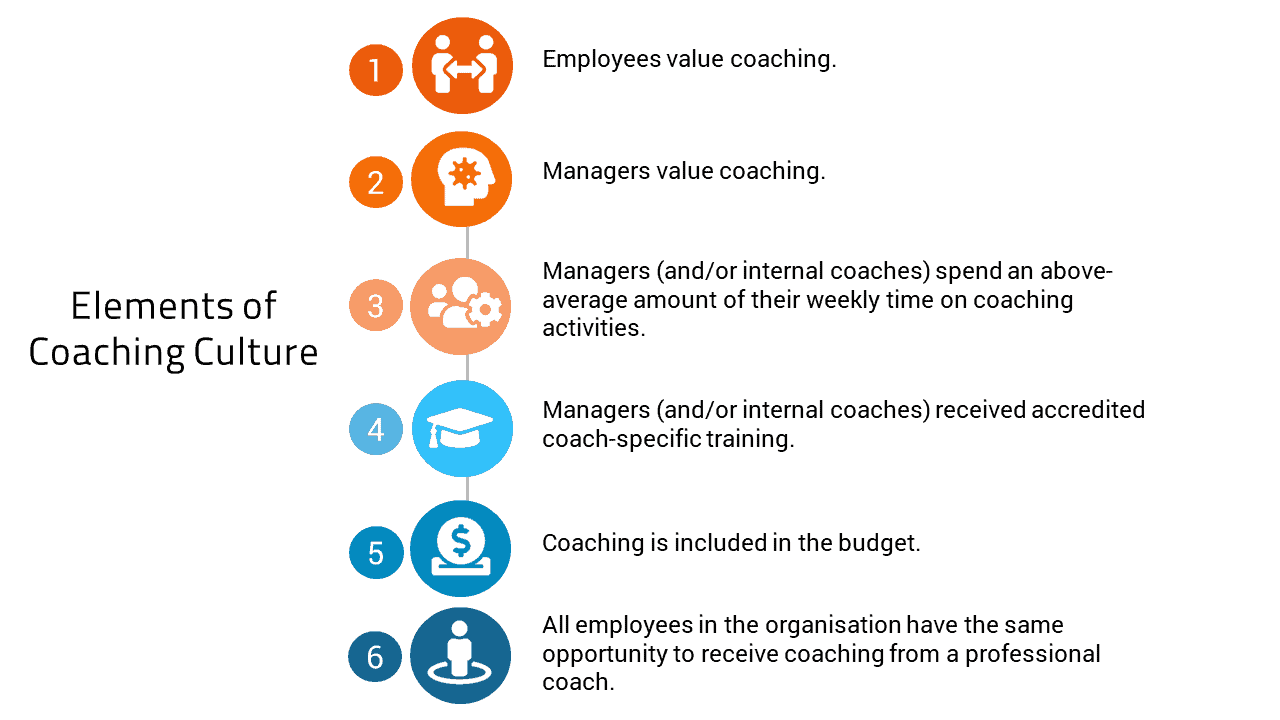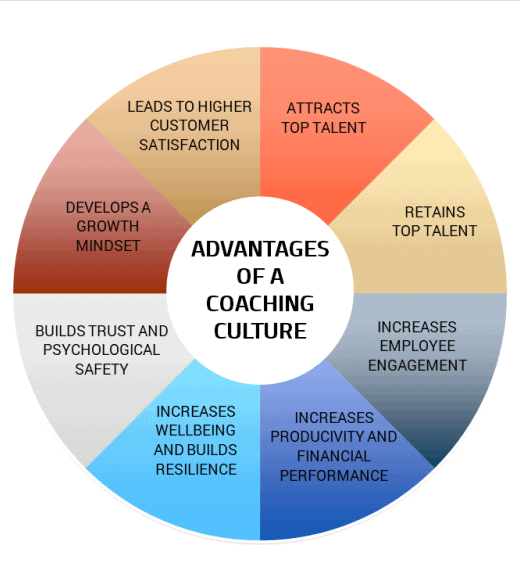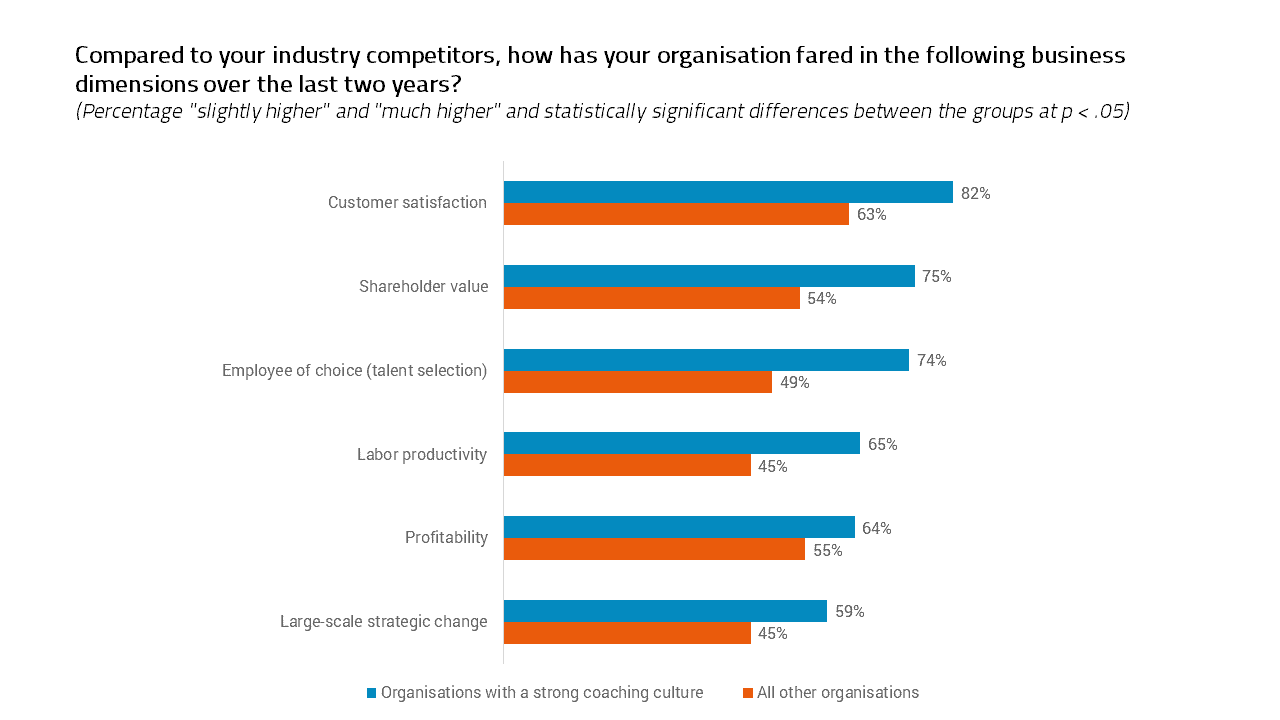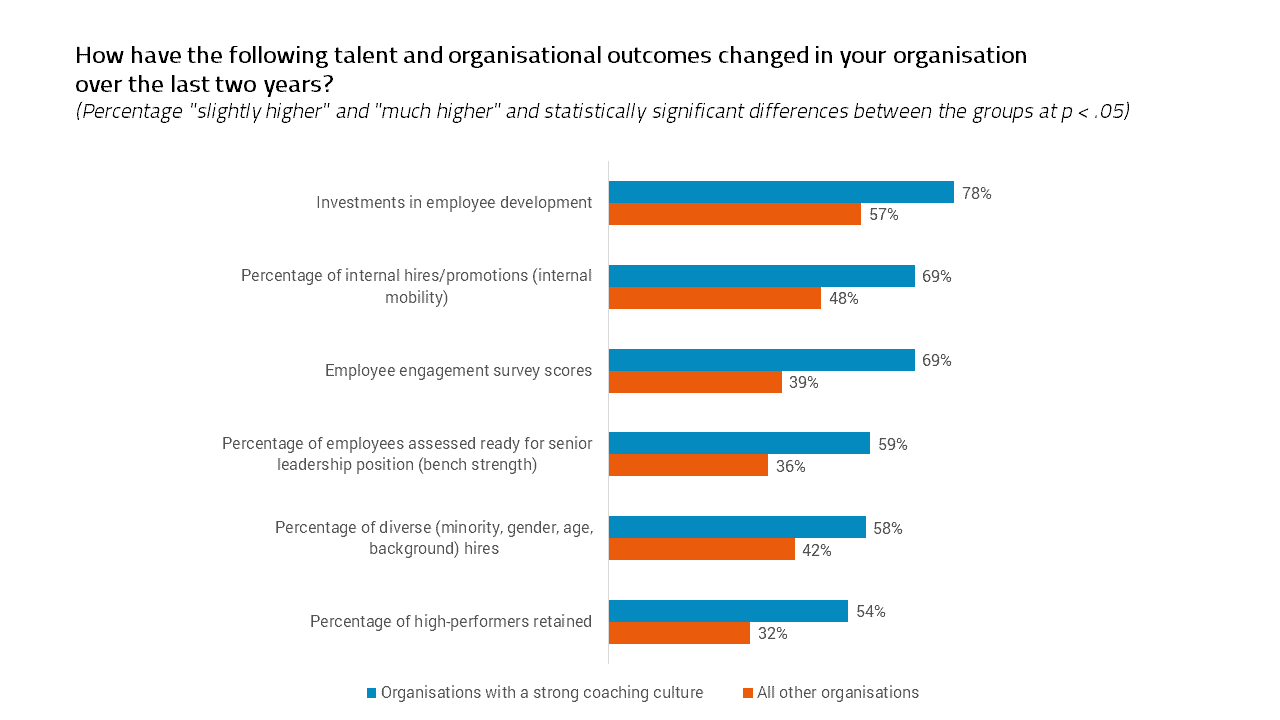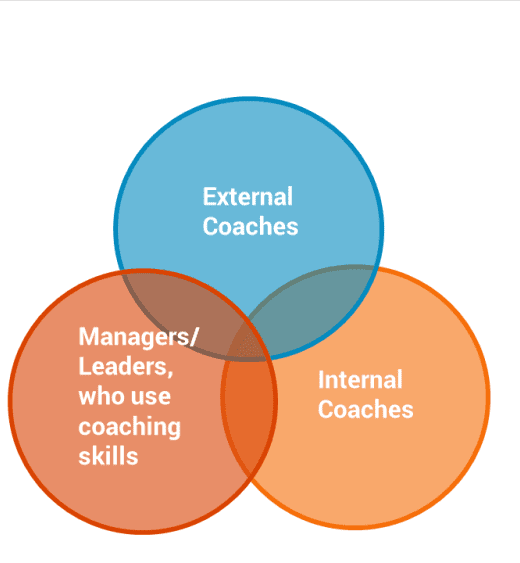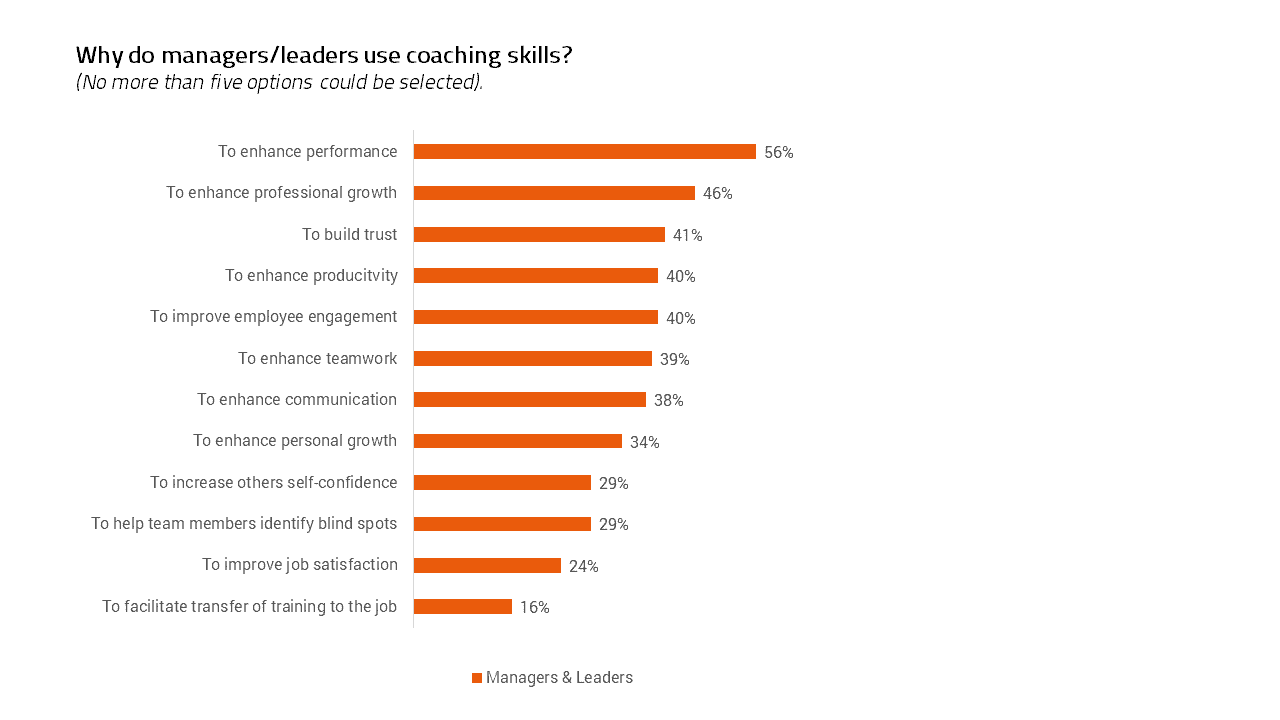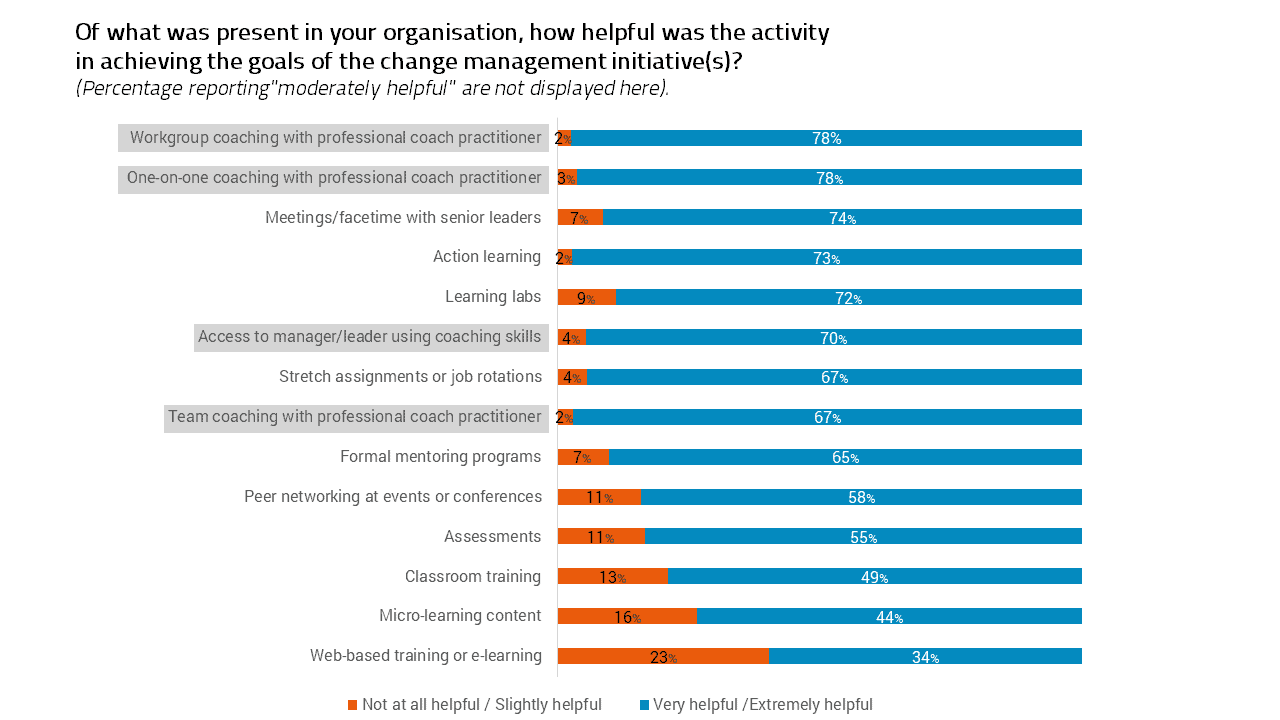Coaching Culture – A Must for Companies?
More and more companies are recognising that the coaching approach plays a fundamental role in building trust, improving performance, and changing behaviour in the long term. This is also proven by a number of convincing figures and statistics. For this reason, more and more companies are placing culture at the heart of their organisational strategy.
The elements of coaching culture
According to the International Coaching Federation (ICF – the largest coaching association in the world), there need to be at least five of the following elements in order to build a coaching culture in an organisation:
